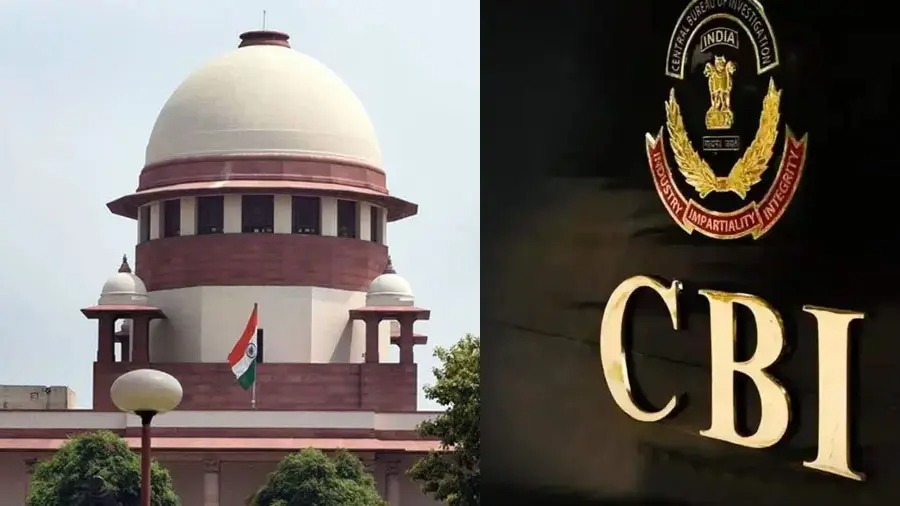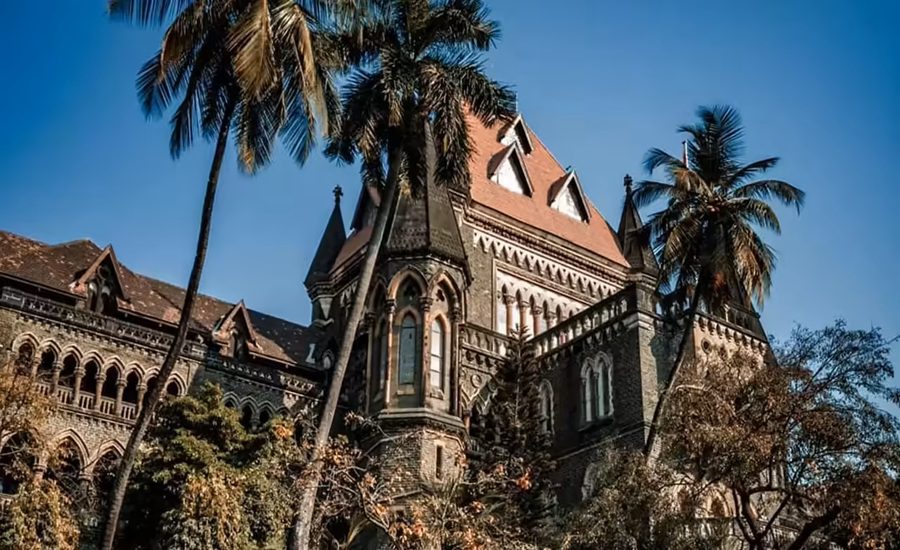S. Chandrashekhar, J.@mdashThe petitioner has approached this Court seeking a direction upon the respondents for payment of leave encashment. Heard learned counsel appearing for the parties and perused the documents on record.
2. The petitioner superannuated from service with effect from 01.08.2009. She was appointed as an Assistant Teacher on 15.09.1970 in a Minority Aided School. Since the claim of the petitioner was not granted, the petitioner has approached this Court by filing the present writ petition.
3. A counter-affidavit has been filed stating as under,
9. That in reply to the statement made in Para 08 of the writ application, it is stated and submitted that the Assistant Teachers working in Minority Schools were paid salary, pension, gratuity, etc. at par with the Assistant Teachers working in Government Schools, but they are not entitled to leave encashment benefit as per orders contained in para 9 of letter No. 23/vi 1-42/82 Shi. 68 dated 06.06.1983/29.06.1983.
4. The learned counsel appearing for the petitioner submits that this Court in C.W.J.C. No. 2162 of 1999 (R) by order dated 20.08.2002 interpreted clause 2 of the circular dated 20.02.1990 and held that leave encashment to the teachers employed in Non-government aided and Minority schools cannot be denied. In W.P. (S) No. 522 of 2002, a learned Single Judge of this Court distinguished the order passed on 20.08.2002 in C.W.J.C. No. 2162 of 1999 (R) and held that order passed in C.W.J.C. No. 2162 of 1999 (R) is not a judgment ''in rem'' but ''in personam'' and therefore, it would not be applicable to others. The State preferred Review petition against the order passed in C.W.J.C. No. 2162 of 1999 (R) which was dismissed and thereafter, Letters Patent Appeals against the orders passed in the Review petition as well as in the writ petition were preferred by the State which also stood dismissed. SLP bearing SLP (C) No. ...../2006 (C.C. No. 7881 of 2006) was preferred by the State of Jharkhand which was also dismissed by order dated 21.02.2006 and therefore, the reliance placed by the State on the judgment passed in W.P. (S) No. 522 of 2002 and on the circular dated 06.06.1983, is not justified and the petitioner should have been granted the benefit of leave encashment. The learned counsel appearing for the petitioner has relied on the judgment by the Full Bench of this Court in
5. As against the above, the learned counsel appearing for the respondents has submitted that since there is an express bar under the letter dated 29.06.1983, the benefit of leave encashment cannot be given to the teachers working in a Minority aided school. He has further submitted that the scope of both the circulars, that is, circular dated 29.06.1983 and the circular dated 20.02.1990 are different. The circular dated 29.06.1983 deals with ''retirement benefits'' whereas, circular dated 20.02.1990 relates to ''in service pay benefits'' and since, in paragraph 9 of the letter dated 29.06.1983 there is an express bar whereunder retiral benefits such as, Group Insurance, leave encashment, grant-in-Aid etc. have been denied to the Non-government Aided and Minority Primary/Middle school teachers, the petitioner cannot be granted benefit of leave encashment.
6. On a perusal of the documents on record, I find that in Circular dated 20.02.1990 an express provision has been made for granting all the benefits to the teachers working in the Minority Aided School. Relying on the said circular a learned Single Judge of this Court in C.W.J.C. No. 2162 of 1999 (R) allowed the claim of the employee for leave encashment by order dated 20.08.2002. The matter was taken by the State of Jharkhand in appeal and the order passed in C.W.J.C. No. 2162 of 1999 (R) has been affirmed by the Hon''ble Supreme Court as the SLP filed by the State of Jharkhand has been dismissed by order dated 21.02.2006.
7. In
8. In
25. Before go into the legal sanctity of the circular, it must be remembered that the leave encashment is paid on account of unutilized leave and therefore, it partakes the character of salary. Pension is no longer considered as a bounty. The salary is a property given to the hands of the State which cannot be withheld except under the powers derived by a statute or law as contemplated under Article 300-A of the Constitution of India as laid down by the Supreme Court in
9. In
3. We have heard learned counsel for the parties at considerable length, and we find general agreement between the parties that there is no reason for discrimination between the teachers employed in aided schools and those employed in government schools so far as the salaries and additional dearness allowance are concerned. The State Government does not accept the claim to parity in respect of other heads of allowance put forward by the petitioners. We were at one time disposed to ruling on the question whether the responsibility for providing education in schools belongs to the State Government, and therefore whether there is a corresponding responsibility on the State Government to ensure that in aided schools the teachers are entitled to the same emoluments as are provided for teachers in government schools. We do not, however, propose to enter upon this question in these cases as we are satisfied from the developments which have followed after the hearing on the merits that it would be more appropriate to dispose of these cases by a short order. The State Government has expressed its readiness to reimburse the payment of ten installments of the additional dearness allowance, but not the twenty-five additional dearness allowance installments released after 1-4-1981. It appears that the grant-in-aid given by the State Government to these aided schools covers the deficit to the extent of 75 per cent of the approved expenditure. The approved expenditure extends to the salaries paid to the teaching and non-teaching staff, which includes the pay and dearness allowance and interim relief before 1-4-1981 and the pay and additional dearness allowance beyond 1-4-1981, the deficit expenditure minus income and certain other items, but does not include house rent allowance, medical allowance, city compensatory allowance and the other heads claimed by the petitioners. In our opinion, the teachers of aided schools must be paid the same pay scale and dearness allowance as teachers in government schools for the entire period claimed by the petitioners, and that the expenditure on that account should be apportioned between the State and the Management in the same proportion in which they share the burden of the existing emoluments of the teachers.......
10. The Judgment in
10. ..........The judgment of this Court dated July 28, 1988 also accepts the principle of parity in the matter of salaries and dearness allowance of teachers employed in aided schools and those employed in government schools and there is nothing in the judgment which indicates that the said principle of parity is to be applied up to December 31, 1985 only, and not thereafter. In the circumstances we are of the view that the direction of this Court in the judgment dated July 28, 1988 must be construed to mean that the respondents are required to maintain such parity and to revise, from time to time, the pay scales and dearness allowance of the teachers employed in aided schools as and when the pay scales and dearness allowance of teachers employed in government schools are revised. It is, therefore, incumbent upon respondents to revise the pay scales of teachers employed in the aided schools so as to bring the same at par with the pay scales of the teachers employed in government schools with effect from January 1, 1986 and fix the salaries of the teachers employed in aided schools in the revised pay scales with effect from January 1, 1986 and pay the salaries and dearness allowance to these teachers on that basis.
11. In view of the aforesaid, I am of the view that paragraph No. 2 in letter dated 20.02.1990 would include grant of leave encashment to the teachers of Non-Aided Government Schools and the Minority Schools also as retiral benefits such as pension, gratuity, leave encasement etc. would be deemed to be part of the service condition of an employee. Since leave encashment partakes character of salary, such benefit cannot be denied to a teacher in view of letter dated 29.06.1983 which has no statutory force.
12. In view of the aforesaid, I am of the opinion that circular dated 29.06.1983 cannot be given effect to in cases of the teachers of the Non-Aided Government and Minority Schools. Moreover, by order dated 03.01.2014 passed in W.P. (S) No. 506 of 2013, a Division Bench of this Court has allowed a similar prayer made by a teacher of a Minority Aided School. In the result, I am of the view that the stand taken by the respondents for denying the claim of the petitioner is not justified and therefore, the writ petition is allowed.

